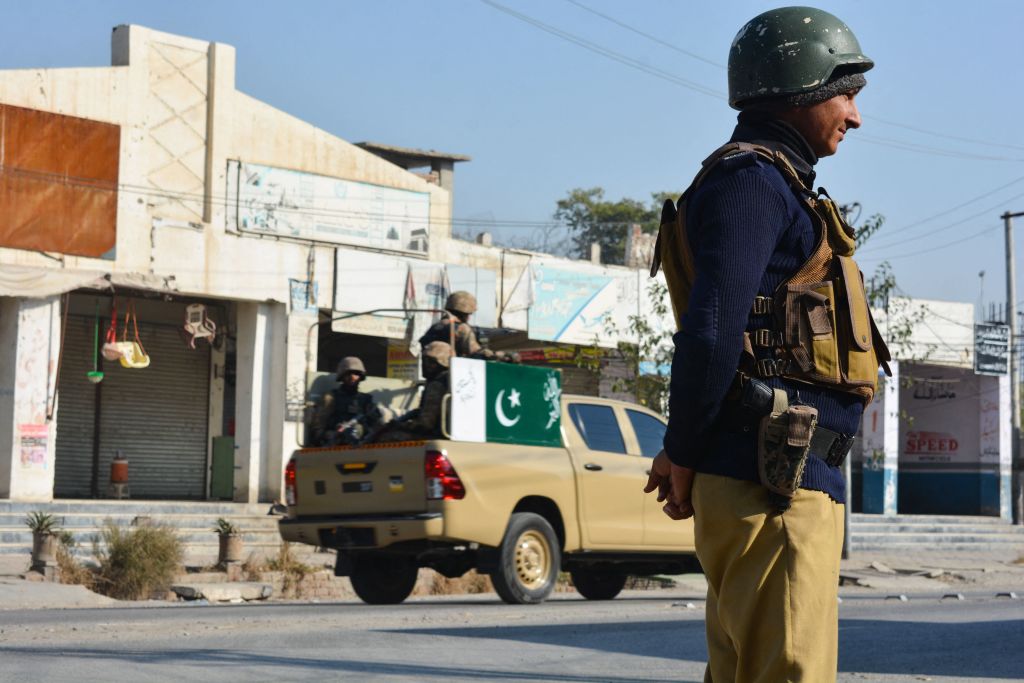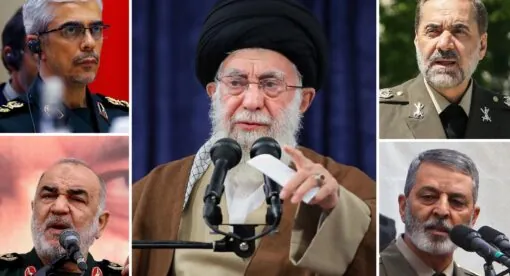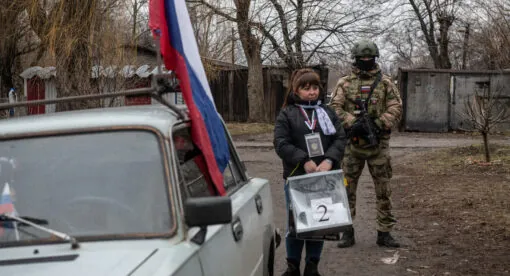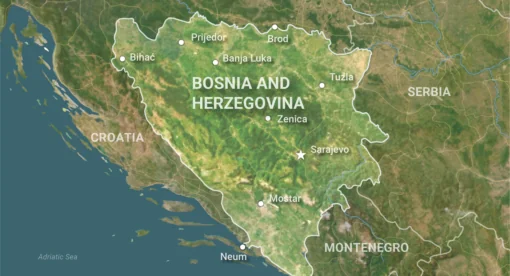Since the Taliban’s return to power in Kabul, Afghanistan and Pakistan have been at loggerheads over the Pakistani Taliban, or Tehrik-i-Taliban Pakistan (TTP). Based in Afghanistan, the Islamist militant group has fought against the Pakistani military and U.S. and other allied forces since its founding in 2007. The group carried out dozens of attacks on Pakistani security forces in 2022 alone, threatening the stability that Pakistani military and U.S. counterterrorism operations had brought to the region. The United States should maintain its focus on the evolving security situation in Pakistan and explore opportunities for collaboration to keep TTP havens in Afghanistan from threatening national security for the U.S. and its allies in the region.
In August 2021, the Taliban retook Afghanistan by force and formed an interim government following the collapse of Ashraf Ghani’s government. Many in Pakistan, including then-Prime Minister Imran Khan, thought that Islamabad would have one less border to worry about, considering Pakistan’s historical relationship with the Taliban.
However, this expectation was misguided: A year and a half later, the Pakistani-Afghan border is aflame, and clashes between Afghan border guards and Pakistani soldiers are the norm, not the exception. In a clash in December 2022, six Pakistani civilians were killed after a mortar shell fired by Afghan Taliban guards fell inside a busy market in Chaman, a key border town in Balochistan. Officials in both Pakistan and Afghanistan raced to control the situation, and both governments agreed to resolve all the disputes through diplomatic channels.
While direct clashes may be controlled through bilateral exchanges, Pakistan finds itself unable to resolve the threat posed by the TTP. The organization, which has links to al Qaeda and pledges allegiance to the Afghan Taliban’s emir, is a coalition of militant groups founded in 2007. The TTP has been waging a bloody war against Pakistan since the group’s inception, with the aim of imposing its own version of Shariah, starting in Pakistan’s northwest.
Pakistan had to launch several operations to drive the group away from the country’s tribal areas in 2015. Over time, however, the militants found refuge in Afghanistan, from where they continued to carry out attacks in Pakistan. The Pakistani government routinely confronted Ghani’s government in Kabul over these safe havens. Pakistani leaders frequently claimed that Afghanistan’s intelligence agency, the National Directorate Service, was supporting the TTP.
A New Surge
Following the Taliban’s August 2021 takeover of Kabul, Islamabad demanded that the new regime prevent the TTP from launching attacks on Pakistan from Afghan soil. In response, the Taliban offered Pakistan their help to negotiate a peaceful settlement with the TTP. These talks gained momentum, and soon both sides reached a cease-fire. Lt. Gen. Faiz Hameed, who at the time headed Pakistan’s Inter-Services Intelligence (ISI), led Islamabad’s side in the talks. Just 19 days after the fall of Kabul, he flew to the Afghan capital and assured journalists that “everything will be okay,” while sipping a cup of tea in the Afghan capital’s Serena Hotel.
As with previous cease-fires, the Afghan Taliban-brokered agreement collapsed, and the TTP intensified its war against Pakistan. According to Pakistan Institute of Peace Studies, an Islamabad-based think tank, fatalities increased 25 percent in 2022 from the previous year. The institute’s report says at least 262 terrorist attacks, including 14 suicide bombings, were reported during this period, claiming a total of 419 lives. The TTP, not to be left behind in the domain of information warfare, claimed in its 2022 yearly report (which it sent to reporters) that it had carried out 367 attacks in Pakistan, killing and injuring 1,105 security personnel and their informants. At least 348 of those attacks took place in Pakistan’s Khyber Pakhtunkhwa province, where the TTP had several strongholds before it was driven out in 2015.
Many who had closely watched the Afghan Taliban and TTP had argued since the Taliban retook Kabul that the new interim Afghan Taliban government would never take any action against the TTP, as the Pakistani group had pledged allegiance to the Taliban and had fought for years alongside them against the U.S. and NATO forces in Afghanistan. One such critic was retired Lt. Gen. Asad Durrani, who closely monitored Afghan jihadists during his time as ISI chief in the early 1990s. Durrani told a media outlet in an interview that Pakistan should not expect the Afghan Taliban to take action against the TTP, noting that the Afghan Taliban “didn’t expel Osama bin Laden despite” many threats. In a January interview with the authors, Ismail Khan, a veteran journalist who once interviewed bin Laden, said that the Afghan Taliban are using Pakistan’s own playbook against it: Pakistan for years denied the presence of Taliban safe havens on its soil, which the Afghan Taliban leveraged to conduct attacks in Afghanistan.
After months of ignoring the mounting threat, Pakistani officials are admitting that the TTP used the peace talks and subsequent cease-fire to buy time to regroup. For example, Pakistan National Counter-Terrorism Authority’s December report that the TTP has “increased its footprint and magnitude of activities.” A security official deployed in the tribal areas who requested anonymity agreed with the authority’s findings and told this author that the number of terrorist attacks in the areas bordering Afghanistan had increased significantly after the Taliban’s takeover of Kabul.
The wakeup call for Pakistan seems to have been a suicide bombing in Islamabad during the last week of December. At least two policemen and a driver were killed after a suicide bomber detonated after the taxi he was riding in was stopped by police in Islamabad. The TTP claimed responsibility for the incident. Following the attack, Pakistan’s government heightened security in the capital and several foreign missions in Islamabad restricted their staffers from traveling within the city.
This development also led to a public spat between Pakistan and the Afghan Taliban following Pakistani Interior Minister Rana Sanaullah’s remarks during a TV interview, where he hinted at possible strikes against TTP fighters inside Afghanistan. Afghanistan’s defense ministry under Mullah Yaqoob, the son of slain Taliban founder Mullah Omar, issued a warning to Pakistan following the interview stating, “We have a better experience of protecting our homeland.” The statement also denied the presence of TTP fighters in Afghanistan, a claim which remains questionable considering the reported meetings Pakistani officials and religious clerics had with the TTP leaders, including TTP emir Noor Wali Mehsud, in the Afghan capital.
Pakistan’s Options
The civil-military leadership in Pakistan has finally decided that they will no longer hold direct talks with the TTP. Instead, they will ask the Taliban government to do so.
Outside the realm of discussions, there are rumors of a possible military operation along Pakistan’s border with Afghanistan. However, such an operation seems unlikely, considering the TTP does not hold any territory anywhere inside Pakistan. The group has so far restricted itself to guerilla or hit-and-run attacks by using its sleeper cells in Pakistan. Moreover, military actions lack support among the local population; local tribal leaders met in September 2022 and condemned military actions in the region, noting the harm to the region’s residents in previous military campaigns. According to independent estimates, hundreds of thousands of people had to flee their homes because of the deadly violence and military raids in Pakistan’s tribal areas after the military began its counterterrorism operations in 2009. That said, Pakistan is likely to continue carrying out “intelligence-based operations” against militants hiding in its territory.
A military action against TTP fighters inside Afghanistan could be another option. However, Pakistan is unlikely to choose such an adventure, considering the close ties between the Afghan Taliban government and the TTP Two recently retired top Pakistani military leaders, former army chief Gen. Qamar Javed Bajwa and former intelligence chief Lt. Gen. Faiz Hameed said in June 2021 that the Afghan and Pakistani Taliban are “two faces of the same coin.”
Moreover, such a campaign would be costly, and with Pakistan’s economy teetering on the brink of default, the military will find it nearly impossible to mobilize the resources necessary for a prolonged campaign in Afghanistan. Pakistan’s Interior Ministry claimed that the number of TTP fighters is between 7,000 to 10,000, which means that the military would have to cast a wide net to deal with the threat across the border. In addition, there are legitimate fears that in the event of military action, the Afghan Taliban could use the TTP as its proxy against Pakistan, meaning that the two countries could enter an unannounced war.
A more likely option would be for Pakistan to use antiviolent movements against the TTP. In the past, Pakistani officials viewed anti-Taliban groups such as the Pashtun Tahaffuz Movement with suspicion; many members of the Pashtun group were arrested and jailed amid protests over the military’s failure to stop terrorism. Even now, people in the tribal areas are staging mass protests in the towns and cities against a possible TTP comeback in its former strongholds. Pakistan’s government could take this local anger against terrorism and leverage it to deny the militant group new recruitment opportunities.
Afghanistan’s Responsibilities
If the Afghan Taliban government withdrew its protection from the TTP’s leaders, the group would no longer have a safe space to plan and execute attacks against Pakistan. The Doha agreement, under which the U.S. and U.S.-allied troops left Afghanistan, binds the interim government in Kabul to stopping militant groups from finding safe havens in the country and stopping militants from using Afghan soil to carry out attacks in other countries.
While the TTP has clarified in its statements that it has no foreign agenda and it will not carry out attacks in any foreign land, TTP leaders in the past enjoyed a deep relationship with al Qaeda. In addition, a number of disgruntled TTP members were among the founders of the Islamic State’s Khorasan province (ISIS-K). The international community recalls this history as well, which is why we are now seeing renewed pledges from the U.S. to help Pakistan fight the TTP.
“The United States and Pakistan do indeed have a shared interest in ensuring that the Taliban live up to the commitments [they have made] and that terrorist groups like ISIS-K, like the TTP, like al Qaeda are no longer able to threaten regional security,” said Ned Price, the spokesperson for the U.S. state department, in a briefing on Jan. 4.
Afghan Taliban seeks recognition of their government from the world but they fail to realize that the presence of foreign fighters on their soil makes it difficult for the world to give them any kind of concessions. Sooner or later, the Taliban government will have to realize that they cannot bring economic or political stability to their country if they continue to see the world through their pre-2001 lenses.
Recommendations
Pakistan sorely needs a new anti-terrorism policy that restricts the state institutions from differentiating not only between “good” and “bad” Taliban but between “good” and “bad” militants.
In the past, several armed groups were given concessions by the authorities because they thought such groups would help the government forces fight the anti-Pakistan militants. One group, Hafiz Gul Bahadur, had an unannounced non-aggression pact with the Pakistani military, but its fighters later turned their guns toward Pakistani security forces.
Not differentiating between such groups means Pakistan will have to indiscriminately act against all those involved in violent acts and disarm them without examining their loyalties.
It is also critical that while Pakistan deploys military force against these militant groups, it also speeds up its diplomatic efforts and engages other regional and international powers to pressure the Afghan Taliban into denying foreign fighters, including the TTP, safe havens in Afghanistan. This approach should also include engaging with other countries in providing intelligence that aids with over-the-horizon strikes. Terrorist safe havens in Afghanistan, whether for TTP or other militants, are eventually likely to pose a threat to other countries; appealing to the security concerns of those countries, including India and the U.S., could gain Pakistan support.
Some observers fear that if the Afghan Taliban, under pressure from Pakistan, were to take action against TTP militants, those militants would join and strengthen ISIS-K, but these fears are overblown. ISIS-K, the deadliest franchise of the so-called Islamic State, is the sworn enemy of everyone involved in the current crisis, including the Afghan Taliban, Pakistan, and the U.S. If the TTP fighters turn to ISIS-K for support, the governments in Afghanistan, Pakistan, and the U.S. will have no choice but to counter the threat, which would severely damage the TTP.
After celebrating the return of the Afghan Taliban in Kabul – Pakistan’s prime minister at the time said that “Afghans had broken the shackles of slavery” – Islamabad now finds itself at odds with the Taliban government. With a collapsing economy and limited financial resources, Pakistan must confront the threat of the TTP on its own. The TTP and Afghan Taliban recognize these limitations and are likely to press their advantage.
To stem the tide and push back against the TTP, Pakistani civilian and military leaders must act quickly, engage the international community starting with Washington, and demonstrate that they no longer see some militants as good and others as bad. So long as this shift in attitude does not occur, Pakistan will find itself plagued with terrorism.
Roohan Ahmed is an Islamabad-based journalist who reports on politics, human rights issues and militant groups in the Afghan-Pakistan region. Ahmed has both his BA and his MA from the University of Karachi.
Uzair Younus is the director of the Pakistan Initiative at the Atlantic Council’s South Asia Center. He also is the Vice President at The Asia Group. Younus regularly publishes articles on South Asian politics and economic issues for the Profit Magazine and Dawn, and has been featured on various news outlets, including Bloomberg, CNN, and CNBC. Younus has a BS in economics and finance from Bentley University and an MA in law and diplomacy with a concentration in economic policy and South Asia from The Fletcher School of Law and Diplomacy at Tufts University.
The views expressed in this article are those of the author and not an official policy or position of the New Lines Institute.








